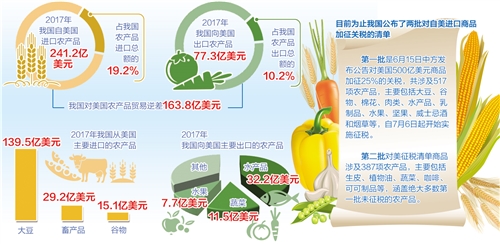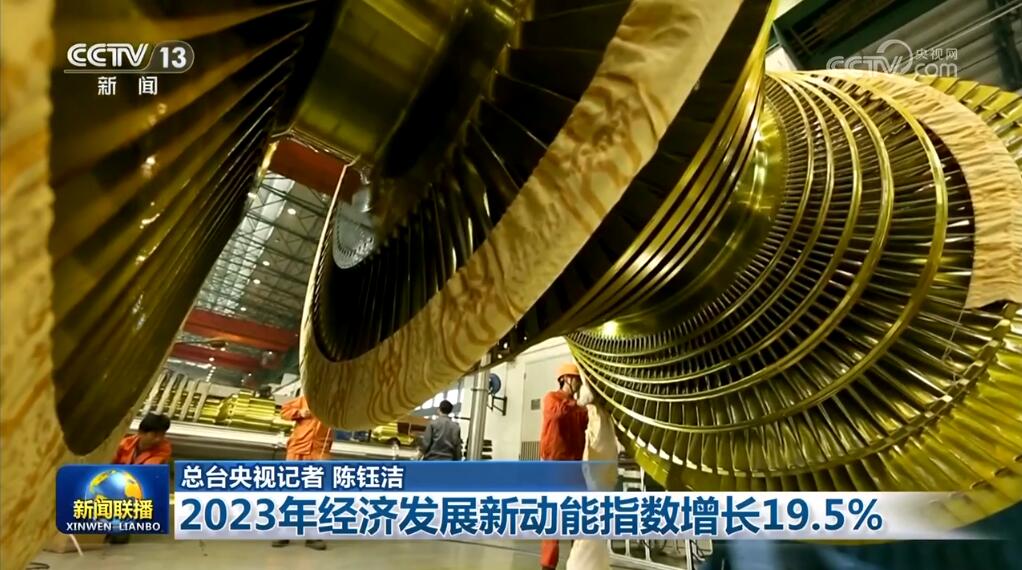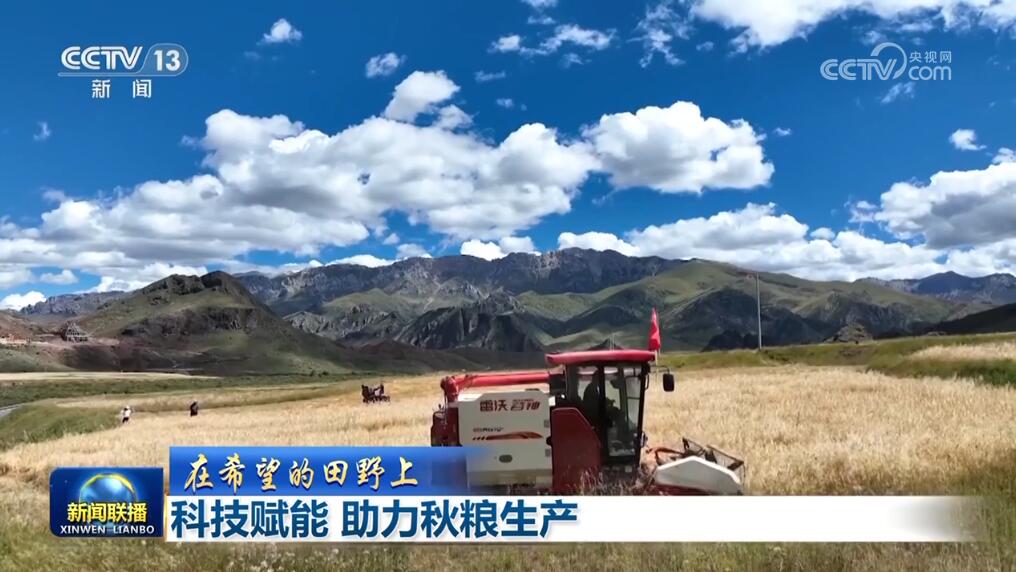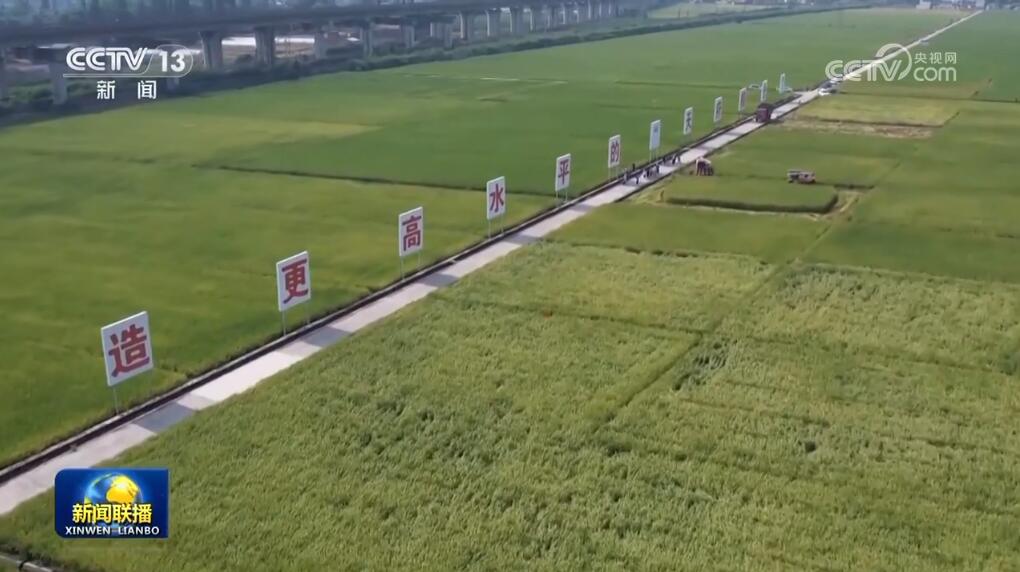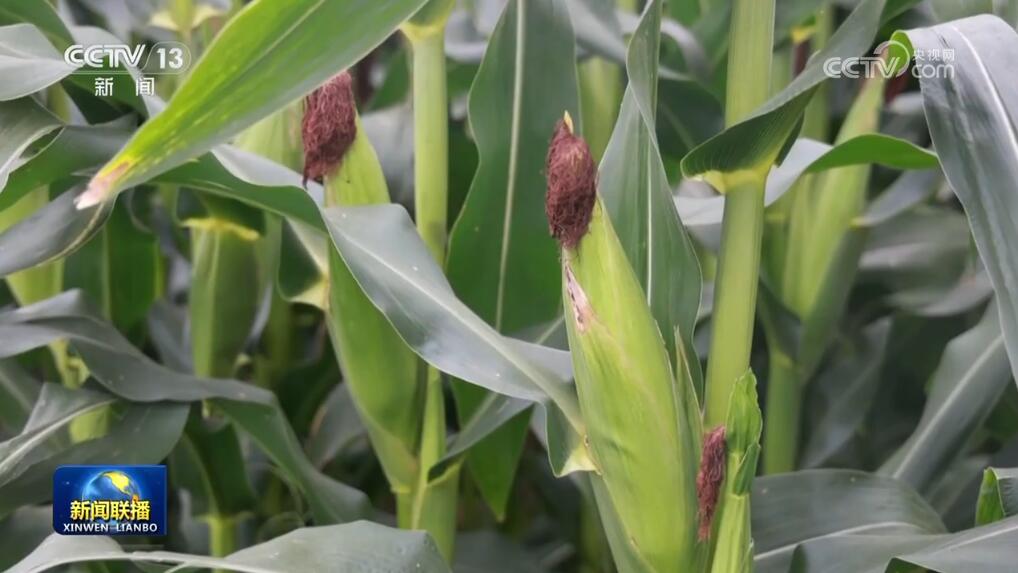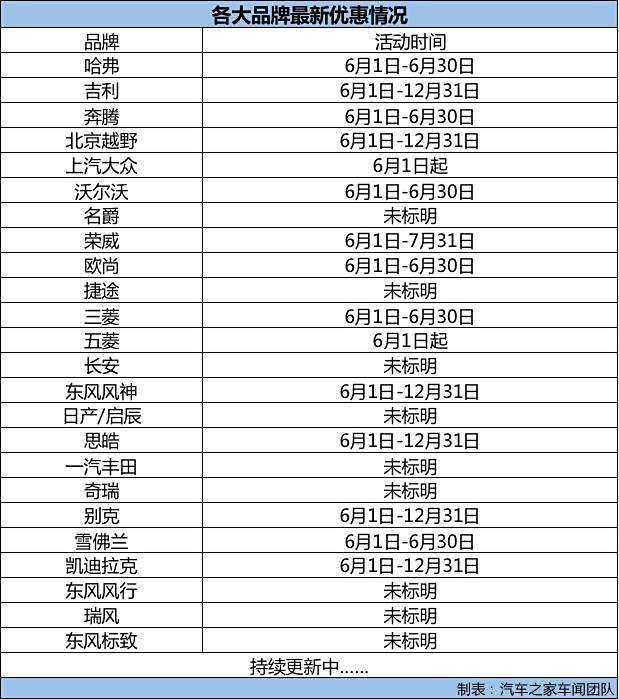Questions and answers on rural homestead policy
1. What is a rural homestead?
Rural homestead is the collective construction land used by rural villagers to build houses and ancillary facilities, including houses, ancillary houses and courtyards, excluding agricultural productive land connected with the homestead and land occupied by farmers beyond the homestead, such as Kugaji.
2. What kind of rural homestead belongs to in land classification?
According to different classification standards, the methods of land classification are different.
According to the Land Management Law of the People’s Republic of China (hereinafter referred to as the Land Management Law), according to the nature of land ownership, land is divided into state-owned land and land collectively owned by farmers, among which homestead belongs to farmers collectively. According to the classification of land use, land is divided into three categories: agricultural land, construction land and unused land. Among them, construction land refers to the land for building buildings and structures, including urban and rural residential and public facilities, industrial and mining land, transportation and water conservancy facilities, tourism land and military facilities. Therefore, in terms of land nature and use, rural homestead belongs to collective construction land.
According to the classification of land use status issued in 2017 (GB/T
21010-2017), the land is further divided into 12 categories, such as cultivated land, industrial and mining storage land, residential land, public management and public service land, transportation land and other land. Among them, the rural homestead belongs to residential land, and the rural road area belongs to transportation land.
3. Who owns the rural homestead?
Rural homestead belongs to the collective members.
Article 10 of the Constitution of People’s Republic of China (PRC) stipulates that the land in rural areas and suburban areas belongs to the collective unless it is owned by the state according to the law; Homestead, private plots and private hills are also collectively owned.
Article 59 of the Property Law of People’s Republic of China (PRC) (hereinafter referred to as the Property Law) stipulates that the real estate and chattels owned by rural collectives belong to the collective members.
4. Which subjects can collectively exercise the ownership of homestead on behalf of farmers?
Article 60 of the Property Law stipulates that if the collectively owned land belongs to the village farmers, the village collective economic organization or the villagers’ committee shall exercise the ownership on behalf of the collective; Belonging to two or more farmers collectively in the village, the collective economic organizations or villagers’ groups in the village collectively exercise ownership; Belonging to the collective ownership of township farmers, the township collective economic organizations shall exercise ownership on behalf of the collective.
The former Ministry of Land and Resources, the Office of the Central Leading Group for Rural Work, the Ministry of Finance and the former Ministry of Agriculture "Several Opinions on the Registration and Certification of Rural Collective Land Confirmation" (No.178 [2011] of the Ministry of Land and Resources) stipulates in the "Defining the Subject Representative of Rural Collective Land Ownership according to Law" that if it belongs to the collective ownership of village farmers, the village collective economic organization or villagers’ committee shall exercise the ownership entrusted by the collective members of the farmers; Belonging to two or more farmers collectively in the village, the collective economic organizations or villagers’ groups in the village collectively exercise ownership; Belonging to the collective ownership of township farmers, the township collective economic organizations shall exercise ownership on behalf of the collective; There is no township (town) peasant collective economic organization, and the township (town) collective land ownership is managed by the township (town) government. In the process of land ownership registration, the representative of the farmers’ collective ownership shall apply for it. The specific requirements and forms of collective economic organizations can be determined by provinces (autonomous regions and municipalities directly under the Central Government) according to local relevant regulations and actual conditions.
In December 2016, the Opinions on Steadily Promoting the Reform of Rural Collective Property Rights System (Zhongfa [2016] No.37) issued by the Central Committee of the Communist Party of China and the State Council stipulated that rural collective economic organizations should collectively exercise the ownership of rural collective assets according to law. If no collective economic organizations are established, the villagers’ committees and villagers’ groups should collectively exercise the ownership respectively.
To sum up, the subjects who can exercise the ownership of homestead on behalf of the collective include four categories, namely, collective economic organizations (towns, villages and villages), villagers’ committees, villagers’ groups and township (town) governments (escrow).
5. What is "one household, one house"?
A rural villager can only own one homestead, and the area of his homestead shall not exceed the standards set by provinces, autonomous regions and municipalities directly under the central government. In areas where the per capita land is small and it is impossible to ensure that one household has a homestead, the people’s government at the county level can take measures to ensure that rural villagers can live in homes according to the standards stipulated by provinces, autonomous regions and municipalities directly under the Central Government on the basis of fully respecting the wishes of rural villagers.
6. What are the basic characteristics of China’s current rural homestead system?
Homestead system is an important part of China’s characteristic land system, and its core is to safeguard the collective ownership of rural land and protect farmers’ basic living rights. Since the founding of New China, the institutional framework of rural residential land in China has basically taken shape through evolution. Its basic characteristics are: collective ownership, members’ use, one household and one house, limited area, free acquisition, long-term possession, planning control and internal circulation. This institutional arrangement has played an extremely important role in ensuring that rural households have homes and people do not lose their places, and has promoted rural economic development and social stability.
7. What are the basic contents of the current rural homestead property right system?
The basic content of the current homestead property right system is that farmers collectively own the homestead ownership, members of rural collective economic organizations have the right to use the homestead, and eligible farmers have the qualification to allocate the homestead.
8. What is the difference between a farm house and a commercial house?
Farmhouses are houses for villagers to live in rural areas, and the main differences from commercial houses are:
First, the nature of land is different: rural housing construction occupies collectively owned land, while commercial housing occupies state-owned construction land.
Second, the acquisition methods are different: only eligible members of rural collective economic organizations are allowed to apply for homestead construction for rural houses, while commercial houses are developed and constructed by enterprises with real estate development qualifications.
Third, the land use years are different: the current laws and policies do not specify the term of the right to use rural homesteads; The land use period of commercial housing land is generally 70 years. If the land use right expires, it will be automatically renewed.
Fourth, the trading conditions are different: rural houses can only be traded to members who meet the qualification of homestead distribution after approval within the village collective economic organizations, and cannot be mortgaged; Commercial housing can be sold, leased and mortgaged in the market, and the transaction is free.
9. At present, what are the main laws and policies of the country on rural residential land?
At present, the state has no special laws and regulations on the management of rural homestead, and the relevant laws and regulations include the Constitution, the Land Administration Law, the Property Law, the Guarantee Law, the Urban and Rural Planning Law, and the Provisional Regulations on the Registration of Real Estate.
The State Council of the CPC Central Committee issued a series of policy documents, the main ones are: No.1 document of the Central Committee, the State Council’s request for instructions on strengthening the management of rural residential land issued by the State Bureau of Land Management (Guo Fa [1990] No.4), and the Central Committee of the Communist Party of China the State Council’s notice on further strengthening land management and effectively protecting cultivated land (Zhong Fa [1997] No.11). Notice of General Office of the State Council on Strengthening Land Transfer Management and Prohibiting Land Speculation (No.39 [1999] of Guo Ban Fa), Decision of the State Council on Deepening Reform and Strict Land Management (No.28 [2004] of Guo Fa), Notice of the State Council on Promoting Economical and Intensive Land Use (No.3 [2008] of Guo Fa), Notice of the Ministry of Agriculture and Rural Affairs of the Central Rural Work Leading Group Office on Further Strengthening the Management of Rural Homestead.
A series of departmental rules and normative documents issued by relevant administrative departments in the State Council, For example, Notice of the State Bureau of Land Management on Printing and Distributing Several Provisions on Determining Land Ownership and Use Right ([1995] Guo Tu Zi No.26), Notice of the Ministry of Land and Resources on Printing and Distributing Opinions on Strengthening the Management of Rural Homestead (Guo Tu Zi Fa [2004] No.234), Notice of the Ministry of Land and Resources on Further Improving the Management System of Rural Homestead and Effectively Safeguarding Farmers’ Rights and Interests (. Notice of the Ministry of Land and Resources, the Ministry of Finance, the Ministry of Housing and Urban-Rural Development, the Ministry of Agriculture and the State Forestry Administration on Further Accelerating the Registration and Certification of the Right to Use Homestead and Collective Construction Land (Guo Tu Zi Fa [2014] No.101), Notice of the Ministry of Land and Resources on Further Accelerating the Registration and Certification of Homestead and Collective Construction Land (Guo Tu Zi Fa [2016] No.191), Notice of the Ministry of Agriculture and Rural Affairs on Actively and Steadily Carrying out the Revitalization and Utilization of Rural Idle Homestead and Idle Houses (No.4 [2019] of the Ministry of Agriculture and Rural Affairs) and Notice of the Ministry of Natural Resources of the Ministry of Agriculture and Rural Affairs on Standardizing the Examination and Approval Management of Rural Homestead (No.6 [2019] of the Ministry of Agriculture and Rural Affairs).
All provinces, autonomous regions and municipalities directly under the central government have formulated local laws, regulations and management documents in accordance with the requirements of laws and the central authorities and based on local conditions, which together constitute the current legal and policy system for rural residential land.
10. What development and evolution has the rural homestead system undergone?
The evolution of rural homestead system since the founding of New China is marked by reform and opening up, the promulgation of property law and the revision of land management law, which can be divided into four stages.
The first stage was from 1949 to 1978, when collective ownership was gradually established. The 1954 Constitution stipulated the ownership of farmers’ homestead. In 1962, the draft amendment to the working regulations of rural people’s communes (namely, "Article 60 of the People’s Commune") stipulated that the homestead was owned by the production team and was not allowed to be rented or bought or sold.
The second stage is from 1978 to 2007, the stage of strict management of homestead. In February, 1982, the State Council issued "Regulations on the Management of Land for Building in Villages and Towns", which put forward the requirement of homestead quota and stipulated the legality of obtaining homestead for specific urban residents. In April 1997, the Central Committee of the Communist Party of China and the State Council issued the Notice on Further Strengthening Land Management and Effectively Protecting Cultivated Land, and put forward the requirement of "one household, one house" in the form of a central document for the first time. The land management law revised in 1998 deleted the provisions of the 1986 land management law on the use of collective land by urban non-agricultural registered permanent residence residents to build houses; It stipulates "one household, one house and limited area", that is, "a rural villager can only own one homestead, and the area of its homestead shall not exceed the standards set by provinces, autonomous regions and municipalities directly under the Central Government". In May 1999, the General Office of the State Council issued the Notice on Strengthening the Management of Land Transfer and Prohibiting Land Speculation, which prohibited urban residents from purchasing homesteads in rural areas for the first time.
The third stage is from 2007 to 2018, the stage of reform, empowerment and capacity expansion. The Property Law promulgated in March 2007 made it clear that the right to use homestead is usufructuary right. In December 2014, the General Offices of the General Office of the Central Committee of the CPC and the State Council issued the Opinions on Rural Land Expropriation, Collective Management Construction Land Entering the Market and the Pilot Work of Homestead System Reform, and deployed and carried out the pilot reform of rural homestead system. In 2018, the No.1 Document of the Central Committee proposed to explore the "separation of three powers" of the ownership, qualification and use right of the homestead, which marked a new stage of the reform and exploration of the homestead system.
The fourth stage is the standardized management stage of homestead since 2019. In August 2019, the 12th meeting of the 13th the NPC Standing Committee made the third amendment to the Land Administration Law of the People’s Republic of China. In the newly revised land management law, the homestead distribution system of one household, one house and one home is defined, and the village planning system of making overall and reasonable arrangements for homestead land is defined; It is clear that the homestead is approved by the township (town) people’s government, and it can be voluntarily withdrawn with compensation according to law, encouraging the active use of idle homesteads and idle houses, and the new homestead management system in which the agricultural and rural authorities in the State Council are responsible for the reform and management of rural homesteads nationwide. The newly revised land management law marks that the management of rural residential land in China has entered a new era of standardized management, from management institutions and system design to policy guidance, supervision and inspection.
11. What do the three system reforms of rural land mean?
The reform of three systems of rural land refers to the rural land expropriation, the entry of collective construction land into the market and the pilot reform of homestead system.
In December 2014, the General Offices of the General Office of the Central Committee of the CPC and the State Council issued the Opinions on Rural Land Expropriation, Entry of Collective Construction Land into the Market, and Pilot Work of Homestead System Reform (No.71 [2014] of the Central Office), and deployed the pilot work of three rural land system reforms throughout the country. The main objectives of the reform are: to improve the rural land expropriation system with standardized procedures, reasonable compensation and multiple guarantees, the rural collective management construction land entry system with the same rights and prices, smooth circulation and revenue sharing, and the rural homestead system with fair acquisition, economical and intensive use and voluntary and paid withdrawal according to law. Explore the formation of replicable and scalable reform results, and provide support for scientific legislation and revision and improvement of relevant laws and regulations.
In February 2015, the 13th meeting of the 12th the National People’s Congress Standing Committee (NPCSC) deliberated and passed the Decision on Authorizing the State Council to Temporarily Adjust and Implement Relevant Legal Provisions in the Administrative Regions of 33 Pilot Counties (cities, districts) including Daxing District, Beijing, authorized the suspension of the implementation of the relevant provisions of the Land Administration Law of the People’s Republic of China and the Urban Real Estate Administration Law of People’s Republic of China (PRC) in the pilot areas, and started the pilot work of three rural land systems reform, with a total of 33 pilot counties in China.
List of 33 pilot counties (cities, districts): Daxing District of Beijing, Jixian County of Tianjin, Dingzhou City of Hebei Province, Zezhou County of Shanxi Province, Helinger County of Inner Mongolia Autonomous Region, Haicheng City of Liaoning Province, Jiutai District of Changchun City of Jilin Province, Anda City of Heilongjiang Province, Songjiang District of Shanghai, Wujin District of Changzhou City of Jiangsu Province, Yiwu City of Zhejiang Province, Deqing County of Zhejiang Province, Jinzhai County of Anhui Province, Jinjiang City of Fujian Province. Yicheng City in Hubei Province, Liuyang City in Hunan Province, Nanhai District in Foshan City, Guangdong Province, Beiliu City in Guangxi Zhuang Autonomous Region, Wenchang City in Hainan Province, Dazu District in Chongqing City, Pixian County in Sichuan Province, Luxian County in Sichuan Province, Meitan County in Guizhou Province, Dali City in Yunnan Province, Qushui County in Xizang Autonomous Region Province, Gaoling District in Xi ‘an City, Shaanxi Province, Longxi County in Gansu Province, Huangyuan County in Qinghai Province, Pingluo County in Ningxia Hui Autonomous Region and Yining City in Xinjiang Uygur Autonomous Region.
12. How about the pilot reform of rural homestead system?
In November 2013, the Third Plenary Session of the 18th CPC Central Committee adopted the Central Committee of the Communist Party of China’s Decision on Several Major Issues of Comprehensively Deepening Reform, which clarified the objectives and tasks of rural homestead system reform. The main contents are: safeguarding farmers’ homestead usufructuary rights, reforming and improving rural homestead system, selecting several pilot projects, prudently and steadily promoting the mortgage, guarantee and transfer of farmers’ housing property rights, and exploring channels for farmers to increase property income; Establish rural property rights transfer trading market, and promote the open, fair and standardized operation of rural property rights transfer transactions.
According to the Opinions of General Offices of the General Office of the Central Committee of the CPC and the State Council on Rural Land Expropriation, Collective Management Construction Land Entering the Market, and the Pilot Work of Homestead System Reform, the main contents of reforming and perfecting the rural homestead system are "two explorations and two improvements", namely, improving the way to protect and obtain the rights and interests of the homestead, exploring the paid use system of the homestead, exploring the voluntary paid withdrawal mechanism of the homestead, and improving the management system of the homestead. In 2019, the mature experience gained from the pilot reform of rural homestead system was reflected in the newly revised land management law. However, some deep-seated contradictions and problems in the homestead system still exist because of the short time, insufficient content and small coverage of the pilot project and insufficient reform and exploration.
In 2019, Document No.1 of the Central Committee called for "steadily and cautiously promoting the reform of rural homestead system, expanding the reform pilot, enriching the pilot content and improving the system design." In 2020, Document No.1 of the Central Committee called for "further deepening the pilot reform of rural homestead system with the focus on exploring the separation of ownership, qualification and use rights of homestead." In accordance with the requirements of the central government, the Ministry of Agriculture and Rural Affairs took the lead in formulating a new round of pilot program for the reform of the rural homestead system, which will be deployed after being approved by the central government.
13. What is the rural "two rights" mortgage pilot?
The rural "two rights" mortgage pilot project refers to the pilot work of rural contracted land (referring to cultivated land) management rights and farmers’ housing property rights mortgage loans.
In order to further deepen rural financial reform and innovation, increase financial support for "agriculture, rural areas and farmers", guide the orderly circulation of rural land management rights, and prudently and steadily promote the pilot of mortgage, guarantee and transfer of farmers’ housing property rights, in August 2015, the State Council issued the Guiding Opinions on Piloting the Management Rights of Rural Contracted Land and Mortgage Loans for Farmers’ Housing Property Rights (Guo Fa [2015] No.45), and deployed the management rights of rural contracted land (referring to cultivated land).
In December 2015, the 18th session of the 12th the NPC Standing Committee passed the Decision of the NPC Standing Committee on authorizing the State Council to temporarily adjust and implement relevant laws and regulations in the administrative regions of 232 pilot counties (cities, districts) such as Daxing District in Beijing and 59 pilot counties (cities, districts) such as Jixian County in Tianjin, and authorized the State Council to temporarily adjust and implement People’s Republic of China (PRC) in the administrative regions of 232 pilot counties (cities, districts) such as Daxing District in Beijing. In the administrative areas of 59 pilot counties (cities, districts) such as Jixian County, Tianjin, the provisions of the People’s Republic of China (PRC) Property Law and the People’s Republic of China (PRC) Guarantee Law that the right to use collectively-owned homesteads shall not be mortgaged were temporarily adjusted and implemented.
List of 59 pilot counties (cities, districts) for mortgage loans of farmers’ housing property rights: Jixian County, Tianjin; Yuci District, Jinzhong City, Shanxi Province; Helinger County, Wulanhaote City, Inner Mongolia Autonomous Region; Tieling County, kaiyuan city City, Liaoning Province; Jiutai District, Changchun City, Jilin Province; Lindian County, founder county and Dorbert Mongolian Autonomous County, Heilongjiang Province; Wujin District, Yizheng City, Sihong County, Changzhou City, Jiangsu Province; Yueqing City, qingtian county City, Zhejiang Province. Jinzhai County in Anhui Province, Xuanzhou District in Xuancheng City, Jinjiang City, Gutian County, Shanghang County and shishi city City in Fujian Province, yujiang county County, Huichang County and Wuyuan County in Jiangxi Province, Feicheng City, Tengzhou City and Wenshang County in Shandong Province, hua county and lankao county in Henan Province and Hubei Province.yicheng city
Jiangxia District of Wuhan City, Liuyang City, leiyang city City and Mayang Miao Autonomous County of Hunan Province, Wuhua County and Lianzhou City of Guangdong Province, Tianyang County of Guangxi Zhuang Autonomous Region, Wenchang City and Qiongzhong Li and Miao Autonomous County of Hainan Province, jiangjin district, Kaixian County and Youyang Tujia and Miao Autonomous County of Chongqing City, Pengshan District of Luxian County, Pixian County and Meishan City of Sichuan Province, Jinsha County and Meitan County of Guizhou Province and Dali City of Yunnan Province.
14. What does the "separation of powers" of homestead mean?
In 2018, the No.1 document of the Central Committee, Opinions of the Central Committee of the Communist Party of China and the State Council on Implementing Rural Revitalization Strategy, proposed in the "Deepening the Reform of Rural Land System" to explore the separation of ownership, qualification and use rights of homesteads, implement collective ownership of homesteads, guarantee farmers’ qualification rights and farmers’ housing financial rights, and moderately liberalize homesteads and farmers’ housing use rights.
In 2020, Document No.1 of the Central Committee called for "further deepening the pilot reform of rural homestead system with the focus on exploring the separation of ownership, qualification and use rights of homestead." According to the requirements of the central government, the Ministry of Agriculture and Rural Affairs will take the lead in organizing pilot projects, expand the scope of the pilot projects, enrich the pilot contents, improve the system design, explore ways to improve the system of homestead distribution, circulation, mortgage, withdrawal, use, income, approval and supervision around the "separation of ownership, qualification and use rights", and summarize a number of institutional innovations that can be replicated, promoted, benefit people’s livelihood and benefit the law.
Part II Acquisition of Homestead
15. Under what circumstances can rural villagers apply for homestead?
According to the land management law, combined with the relevant provisions of the provinces (autonomous regions and municipalities directly under the central government) on the management of homestead, rural villagers may apply for homestead on a household basis in any of the following circumstances:
(1) No homestead;
(2) the existing homestead is lower than the household standard because of the children’s marriage and other reasons;
(3) the current housing affects the township (town) village construction planning and needs to be relocated and rebuilt;
(4) in line with the policy, the village collective organization has moved into the village and settled as a full member, and there is no homestead in the country of origin;
(5) Relocation due to natural disasters or avoiding geological disasters.
Provinces (autonomous regions and municipalities directly under the central government) have other provisions on the conditions for farmers to apply for homestead, and should also meet other conditions. 16. Who is the subject of rural homestead approval?
Article 62 of the Land Management Law stipulates that rural villagers’ residential land shall be examined and approved by the township (town) people’s government; Among them, those involving the occupation of agricultural land shall go through the examination and approval procedures in accordance with the provisions of Article 44 of this Law. Article 44 stipulates that if the land occupied by construction involves the conversion of agricultural land into construction land, the examination and approval procedures for the conversion of agricultural land shall be handled.
In order to improve the examination and approval mechanism of rural residential land, the Notice of the Ministry of Agriculture and Rural Affairs and the Ministry of Natural Resources on Standardizing the Examination and Approval Management of Rural Residential Land (Nongjingfa [2019] No.6) clearly stipulates that township governments should explore the establishment of a joint examination and joint office system for rural residential land construction with external acceptance and multi-departmental internal linkage operation, so as to facilitate farmers’ work. According to the results of the joint examination of agriculture, rural areas, natural resources and other departments, the township government will examine and approve the application for farmers’ homestead, and issue the Approval Letter for Rural Homestead, encouraging local governments to issue rural construction planning permits together with towns and villages, and make them public in an appropriate way. 17. What is the approval procedure for rural homestead application?
The allocation of rural homestead shall be implemented by farmers’ application, village group audit and township approval. According to the Notice of the Ministry of Agriculture and Rural Affairs and the Ministry of Natural Resources on Standardizing the Management of Rural Homestead Approval (Nongjingfa [2019] No.6), the process of applying for homestead approval includes the application of farmers, the discussion and publicity by villagers’ groups, the material review by village-level organizations, the review by township departments, the examination and approval by township governments, and the issuance of letters of approval for homesteads. The specific process is shown in the figure below. If there are no separate villagers’ groups or the application for homestead and building has been handled by village-level organizations, farmers will apply directly to the village-level organizations, which will be discussed and approved by the villagers’ representative meeting and publicized within the scope of the collective economic organization, and then submitted to the township government for approval.
Approval process of rural villagers’ homestead application
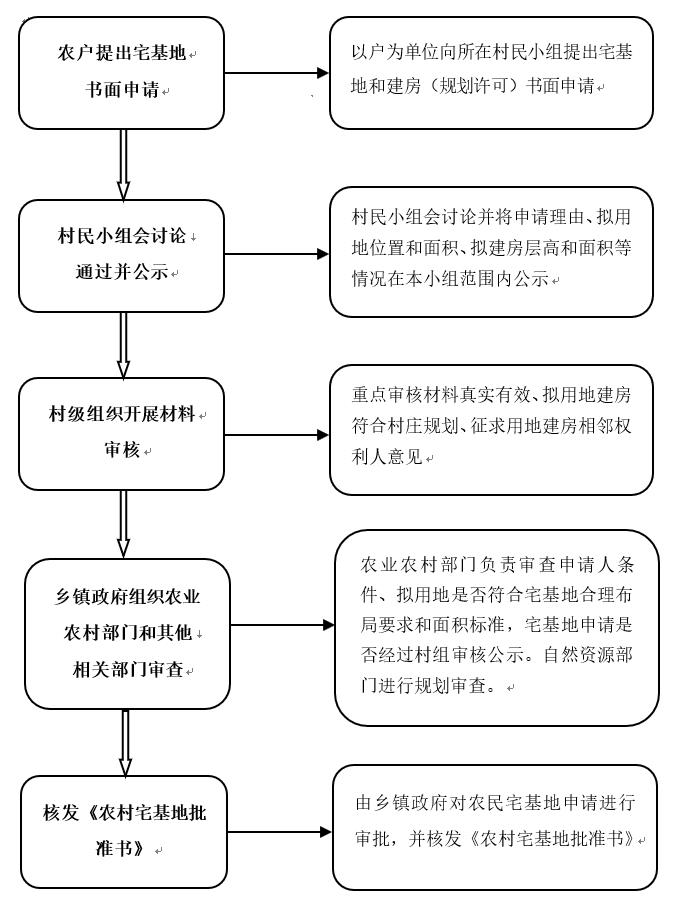
18. Can farmers use agricultural land for building houses?
Farmers can use agricultural land when building houses in line with the planning conditions, but they must go through the formalities of agricultural land conversion in advance according to law. Where agricultural land is converted into construction land, in accordance with the provisions of Article 44 of the Land Management Law, agricultural land other than permanent basic farmland is converted into construction land for the implementation of the plan within the scope of construction land for cities, villages and market towns determined in the overall land use plan, and it shall be approved by the organ that originally approved the overall land use plan or its authorized organ in batches according to the annual land use plan; Within the approved scope of agricultural land conversion, it can be specifically approved by the people’s government of the city or county. The conversion of agricultural land other than permanent basic farmland into construction land beyond the scope of construction land in cities, villages and market towns determined in the overall land use planning shall be approved by the people’s governments of provinces, autonomous regions and municipalities directly under the Central Government authorized by the State Council or the State Council. Permanent basic farmland to construction land, approved by the State Council.
On March 12, 2020, the State Council issued the Decision on the Authorization and Entrustment of Land Use Approval Authority (Guo Fa [2020] No.4), which on the one hand authorized the people’s governments of provinces, autonomous regions and municipalities directly under the Central Government to approve the conversion of agricultural land other than permanent basic farmland that the State Council can authorize into construction land. In accordance with the provisions of the third paragraph of Article 44 of the Land Administration Law of the People’s Republic of China, the State Council authorizes the people’s governments of all provinces, autonomous regions and municipalities directly under the Central Government to approve the conversion of agricultural land other than permanent basic farmland into construction land in batches within the scale of construction land in the State Council. According to the fourth paragraph of Article 44 of the Land Management Law of the People’s Republic of China, the State Council authorizes the people’s governments of all provinces, autonomous regions and municipalities directly under the Central Government to approve the conversion of agricultural land other than permanent basic farmland into construction land beyond the scope of construction land in cities, villages and market towns determined by the overall land use planning. On the other hand, the conversion of permanent basic farmland into construction land and the approval of land expropriation in the State Council are entrusted to the people’s governments of some provinces, autonomous regions and municipalities directly under the Central Government for approval. The first batch of pilot provinces are Beijing, Tianjin, Shanghai, Jiangsu, Zhejiang, Anhui, Guangdong and Chongqing, and the pilot period is one year. 19. After transferring the homestead, can farmers apply for the homestead again?
According to the provisions of Article 62 of the Land Management Law, rural villagers who sell, lease or donate their houses and then apply for homestead shall not be approved.
20. What is the nature of the right to use rural homestead?
The right to use the homestead is a usufructuary right. Chapter XIII of Part III of the Property Law "usufructuary right" is devoted to regulating the right to use homestead, among which Article 152 stipulates that "the owner of homestead right has the right to possess and use collectively owned land according to law, and has the right to use the land to build houses and ancillary facilities according to law".
21. Can farmers who settle in cities continue to retain the right to use their homesteads?
Farmers who settle in cities can retain their legally acquired right to use the homestead according to law.
According to the spirit of "Several Opinions of the Central Committee of the Communist Party of China and the State Council on Adhering to Priority Development of Agriculture and Rural Areas and Doing a Good Job in" Agriculture, Countryside and Farmers "(Zhongfa [2019] No.1)," Insist on safeguarding farmers’ land rights and interests, and do not take withdrawing contracted land and homestead as the condition for farmers to settle in cities ",farmers who settle in cities cannot be forced to give up their legally obtained right to use homestead. Prior to this, the Notice of the Ministry of Land and Resources on Further Accelerating the Registration and Certification of Homestead and Collective Construction Land (Guo Tu Zi Fa [2016] No.191) stipulated that "after farmers settle in the city, their legally acquired homestead use rights should be registered." 22. Can rural homesteads and farmhouses be inherited?
Rural homestead cannot be inherited, and rural houses can be inherited according to law.
Rural homestead ownership, homestead use right and house ownership are separated, homestead ownership belongs to farmers’ collective, and homestead use right and house ownership belong to farmers. The right to use the homestead takes the household as the unit and enjoys the right to occupy and use the homestead according to law. In the case of the death of a member in the house and the existence of farmers, the problem of homestead inheritance does not occur. When farmers die, the subject of rights no longer exists and the right to use the homestead is lost. At the same time, according to the relevant provisions of the inheritance law, the house of the decedent is inherited by the heir as his inheritance. Because the premises can’t be separated, the heirs can use the homestead according to law after inheriting the house and obtaining the ownership of the house, but they don’t obtain the usufructuary right to use the homestead.
23. What is the "integrated real estate" title deed?
The property right certificate of "integration of real estate and premises" is the proof of the ownership of real right. According to the Provisional Regulations on the Registration of Real Estate, the Detailed Rules for the Implementation of the Provisional Regulations on the Registration of Real Estate, and the Code of Practice for the Registration of Real Estate (for Trial Implementation), the rural homestead, collective construction land and the buildings and structures on it will be uniformly issued after unified ownership investigation and ownership registration.
Certificate of immovable property right of "integration of real estate and premises" 24. What materials do I need to submit for the "property-integrated" property right certificate?
To apply for the first registration of the right to use the homestead and the ownership of the house, the following materials shall be submitted according to different situations: (1) the applicant’s ID card and household registration book; (two) the ownership certificate of real estate or the document of the people’s government that has the right to approve the land use and other ownership source materials; (3) Relevant materials that the house conforms to the planning or construction; (four) the title questionnaire, land map, house plan and land boundary point coordinates and other materials related to the boundary and area of real estate; (5) Other necessary materials.
Where the right to use the homestead and the ownership of the house have been transferred due to inheritance according to law, division of property, exchange of houses within collective economic organizations, etc., the applicant shall submit the following materials according to different circumstances: (1) Certificate of ownership of real estate or other sources of ownership; (2) Materials inherited according to law; (3) agreements or materials on the division of property: (4) agreements on the exchange of houses within collective economic organizations; (5) Other necessary materials. 25. How to confirm the registration of the historical excessive occupation of homestead?
According to the former Ministry of Land and Resources, the Office of the Central Leading Group for Rural Work, the Ministry of Finance and the former Ministry of Agriculture, "Several Opinions on the Registration and Certification of Rural Collective Land Ownership" (No.178 [2011] of the Ministry of Land and Resources), according to different historical stages, the over-sized homestead was registered and certified.
Before the implementation of the Regulations on the Administration of Land for Building in Villages and Towns in 1982, if the homestead occupied by rural villagers for building has not expanded its land area since the implementation of the Regulations on the Administration of Land for Building in Villages and Towns, it can be registered for confirmation according to the existing actual use area;
From the implementation of the Regulations on the Management of Land for Building in Villages and Towns in 1982 to the implementation of the Land Management Law in 1987, if the homestead occupied by rural villagers for building houses exceeds the local area standard, after the excess part is handled according to the relevant national and local regulations at that time, it can be registered according to the actual use area;
After the implementation of the Land Management Law in 1987, if the homestead occupied by rural villagers exceeds the local area standard, the ownership registration shall be carried out according to the actual approved area. If the area exceeds the local standard, the area exceeding the standard can be indicated in the land register and the note column of the land title certificate. When the household building or the existing house is demolished, rebuilt, renovated or rebuilt, and the government implements the planning and reconstruction according to law, it will be dealt with according to the relevant regulations, and the ownership registration will be re-registered according to the local standard. Part III Utilization of Homestead 26. What are the main ways to make use of idle homesteads and idle houses?
The factors such as location conditions, resource endowment, environmental capacity, industrial base and historical and cultural heritage should be considered as a whole, and the rural idle homesteads and idle houses should be selected for active utilization. According to the Notice of the Ministry of Agriculture and Rural Affairs on Actively and Steadily Carrying out the Revitalization and Utilization of Rural Idle Homestead and Idle Houses (No.4 [2019]), there are mainly the following ways to revitalize the utilization:
First, use idle houses to develop new industries and new formats such as leisure agriculture, rural tourism, catering and lodging, cultural experience, creative office, e-commerce and so on.
The second is to use idle houses to develop agricultural products cold chain, primary processing, warehousing and other first, second and third industries integration development projects.
Third, by means of consolidation, reclamation and greening, we will carry out the renovation of rural idle homesteads, make use of policies such as linking the increase and decrease of urban and rural construction land according to laws and regulations, and entering the market with collective construction land, so as to provide land and other factors for farmers to build houses, rural construction and industrial development. 27. What are the main bodies of idle homesteads and idle houses?
The Notice of the Ministry of Agriculture and Rural Affairs on Actively and Steadily Carrying out the Revitalization and Utilization of Rural Idle Homestead and Idle Houses (No.4 [2019] of the Ministry of Agriculture and Rural Affairs) proposes to protect the legitimate rights and interests of various subjects in accordance with the law and promote the formation of a good situation of multi-participation and win-win cooperation. The main body of active utilization mainly includes the following three categories:
First, rural collective economic organizations and their members. On the premise of fully protecting the legitimate rights and interests of farmers’ homesteads, support rural collective economic organizations and their members to revitalize and utilize rural idle homesteads and idle houses in various ways such as self-employment, leasing, shareholding and cooperation. Encourage rural collective economic organizations with certain economic strength to make unified use of idle homesteads and idle houses.
The second is returnees. Support returnees to rely on their own and idle houses to develop suitable rural industrial projects. "Opinions of General Office of the State Council on Supporting Entrepreneurial Innovation of Returned Rural Workers to Promote the Integrated Development of Rural Primary, Secondary and Tertiary Industries" (Guo Ban Fa [2016] No.84) puts forward that "supporting returned rural workers to develop farmhouse music by relying on their own and idle farmhouses. Under the premise of complying with the rural homestead management regulations and related plans, people returning to the countryside and farmers are allowed to cooperate to rebuild their own houses. "
The third is social enterprises. Guide enterprises with strength, willingness and responsibility to participate in the revitalization and utilization of idle homesteads and idle houses in an orderly manner. 28. What are the support policies to encourage the active use of idle homesteads?
First, financial rewards and subsidies. Co-ordinate arrangements for relevant funds, for rural idle homestead and idle residential use incentives, subsidies, etc.
Second, financial innovation supports the revitalization and utilization of projects. When conditions are ripe, local government special bonds will be issued to support rural idle homesteads and idle residential projects. Promote the innovation of financial credit products and services, and provide support for the revitalization and utilization of rural idle homesteads and idle houses.
The third is the social promotion of resource projects. Combined with rural tourism conference, agricultural carnival, agricultural fair and other activities, to promote rural idle homestead and idle residential resources to the society.
29. How to steadily promote the pilot demonstration of the revitalization and utilization of idle homesteads?
All localities, in light of the actual situation, selected a number of areas that local party committees and governments attach importance to, rural collective economic organizations are sound, rural residential land management is standardized, rural industries have a foundation, and farmers have high enthusiasm, and orderly carried out pilot demonstrations on the revitalization and utilization of rural idle residential land and idle houses. Highlight the characteristics of rural industries, integrate resources, and create a number of models for the revitalization and utilization of homestay (farmhouse) concentrated villages, rural tourism destinations, family workshops, and handicraft workshops. Summarize a batch of replicable and popularized experience models, explore a set of standardized and efficient operation mechanism and management system, and gradually push them away.
30. How to regulate the active use of idle homesteads according to law?
Further strengthen the management of homestead, standardize the utilization mode, business industry, lease term, transfer object, etc., to prevent encroachment on cultivated land, large-scale demolition and construction, and illegal development, and ensure that idle rural homestead and idle houses that are revitalized are obtained according to law and have clear ownership.
We must resolutely stick to the bottom line of laws and policies, and must not illegally recover the homestead legally obtained by farmers, and must not illegally buy or sell homesteads in disguise. It is strictly forbidden to use rural homesteads to build villa courtyards and private clubs in the countryside.
For the use of idle houses to develop homestays and other projects, in accordance with the requirements of Document No.1 of the Central Committee in 2018, measures such as facilitating market access and strengthening post-event supervision in areas such as fire protection and special industry operations should be studied and promoted as soon as possible.
31. What are the rules for developing homestays and using farmers’ farmhouses?
According to the Basic Requirements and Evaluation of Tourist Homes issued by the Ministry of Culture and Tourism in 2019 (LB/T
065—2019), tourist B&B refers to small accommodation facilities that use local residential and other related idle resources, with no more than 4 floors of business rooms and no more than 800 square meters of construction area, and the host participates in the reception, providing tourists with experience of local nature, culture and production and lifestyle, and can be divided into urban B&B and rural B&B.. The business site of tourist homestays shall conform to the overall land and space planning of this city and county (including the current overall urban planning and land use planning) and the relevant planning for the development of local homestays. Operating a homestay should comply with the relevant regulations and requirements of public security, fire protection, sanitation, environmental protection and safety, and obtain the relevant licenses required by the local government. Some places, such as Beijing, Shanghai, Hainan, etc., have issued policy documents according to local conditions, and made specific provisions on the development of homestays by using rural houses to promote the sustainable and healthy development of rural homestays.
The Notice of the Ministry of Agriculture and Rural Affairs of the Central Rural Work Leading Group Office on Further Strengthening the Management of Rural Homestead (Zhong Nong Fa [2019] No.11) stipulates that village collectives and farmers are encouraged to make full use of idle homesteads and idle houses, and develop farmhouse music, homestays and rural tourism according to laws and regulations through independent operation, cooperative operation and entrusted operation. Urban residents, industrial and commercial capital, etc. who rent farmhouses to live or operate shall strictly abide by the provisions of the contract law, and the term of the lease contract shall not exceed 20 years. After the expiration of the contract, both parties may make another agreement. 32. How to promote the economical and intensive use of homestead?
According to the provisions of the Land Management Law, rural villagers should build houses in accordance with the overall land use planning and village planning of townships (towns), and should not occupy permanent basic farmland, and try to use the original homestead and village Uchikoga.
The Notice of the Ministry of Agriculture and Rural Affairs of the Office of the Central Rural Work Leading Group on Further Strengthening the Management of Rural Homestead (Zhong Nong Fa [2019] No.11) further requires that the land used for homesteads should be rationally arranged, and the occupation of agricultural land by new homesteads should be strictly controlled, and permanent basic farmland should not be occupied; Involving the occupation of agricultural land, it shall go through the formalities for the conversion of agricultural land in advance according to law. Villages outside the scale of urban construction land should increase the homestead space by giving priority to new construction land planning indicators, village renovation, and vacating abandoned homesteads to meet the housing needs of farmers who meet the conditions of homestead allocation. Within the scale of urban construction land, farmers’ housing needs can be met by building farmers’ apartments and farmers’ residential quarters. 33. Can rural homesteads and farmers’ houses be mortgaged?
In addition to the pilot areas authorized by the National People’s Congress Standing Committee (NPCSC) to carry out mortgage loans for farmers’ housing property rights, rural homesteads and rural houses in other places cannot be mortgaged.
Article 184 of the Property Law stipulates that the right to use collectively-owned land, such as cultivated land, homestead, private plot and private plot, shall not be mortgaged, except as stipulated by law. Article 37 of the Guarantee Law stipulates that collectively owned land use rights such as cultivated land, homestead, private plots and private plots cannot be mortgaged.
At the same time, Article 182 of the Property Law stipulates that if a building is mortgaged, the right to use the construction land occupied by the building shall be mortgaged together. Where the right to use construction land is mortgaged, the buildings on the land shall be mortgaged together. That is to say, China implements the principle of "integration of real estate and premises", because the right to use the homestead cannot be mortgaged, resulting in the fact that the rural houses on it cannot be mortgaged.
The fourth part of the homestead circulation
34. What are the ways to transfer the right to use the homestead?
The transfer mode of homestead use right includes transfer and lease. 35. What conditions must be met for the transfer of the right to use rural residential land?
The transfer of the right to use the homestead must be carried out within the village collective economic organization with the consent of the owner of the homestead, and the transferee must be a rural villager who meets the application conditions of the homestead. All provinces (autonomous regions and municipalities directly under the Central Government) shall meet other requirements for the transfer of homestead at the same time. 36. Can urban residents buy homesteads in rural areas?
I can’t.
The State Council’s Decision on Deepening Reform and Strict Land Management (Guo Fa [2004] No.28) clearly stipulates that urban residents are prohibited from purchasing homestead in rural areas. The Notice of the Ministry of Agriculture and Rural Affairs of the Central Rural Work Leading Group Office on Further Strengthening the Management of Rural Homestead (Zhong Nong Fa [2019] No.11) requires that "Homestead is the basic living guarantee for rural villagers, and it is strictly forbidden for urban residents to buy homesteads in rural areas, and it is strictly forbidden to use rural homesteads to build villa compounds and private clubs in rural areas. It is strictly forbidden to occupy or buy or sell homesteads in violation of laws and regulations in the name of circulation. "
37. What is the longest period for renting a farm house?
Article 214th of the Contract Law stipulates that the lease term shall not exceed 20 years. More than twenty years, the excess part is invalid. Upon the expiration of the lease term, the parties may renew the lease contract, but the agreed lease term shall not exceed 20 years from the date of renewal.
The Notice of the Ministry of Agriculture and Rural Affairs of the Central Rural Work Leading Group Office on Further Strengthening the Management of Rural Homestead (Zhong Nong Fa [2019] No.11) stipulates that urban residents, industrial and commercial capital and other rented farmhouses must strictly abide by the provisions of the contract law, and the term of the lease contract shall not exceed 20 years. After the expiration of the contract, both parties may make another agreement. The fifth part of the homestead withdrawal 38. Under what circumstances can the village collective recover the farmer’s homestead?
Under any of the following circumstances, the village collective may recover the right to use the homestead with the approval of the people’s government that originally approved the land use:
(1) If the township (town) village needs to use land for the construction of public facilities and public welfare undertakings, it shall collectively recover the right to use the homestead and give appropriate compensation to the right holder of the homestead;
(2) not using the homestead in accordance with the approved purposes;
(3) Stop using the homestead due to cancellation, relocation and other reasons;
(4) Idle or houses collapse, and the homestead that has not been restored for more than two years is demolished, and the land use right is no longer determined. If the right to use has been determined, it shall be reported by the collective to the people’s government at the county level for approval, and its land registration shall be cancelled and the right to use the homestead shall be collectively recovered;
(5) Non-agricultural registered permanent residence residents (including overseas Chinese) whose original homestead in rural areas has no change in housing property rights can determine their collective construction land use rights according to law. If the reconstruction is not approved after the house is demolished, the right to use the homestead shall be collectively recovered;
(6) When determining the right to use rural residents’ homestead, if the area exceeds the standard set by the local government, the number exceeding the standard area can be indicated in the land registration card and the warrant. In the future, when building houses by households or existing houses are demolished, rebuilt or rebuilt, or the government implements planning and reconstruction according to law, the right to use shall be re-determined according to the area standard stipulated by the local government, and the right to use shall be recovered by the collective;
(7) Other circumstances stipulated by the local government. 39. What are the provisions for voluntary and paid withdrawal of rural homestead?
Article 62 of the Land Management Law stipulates that the state allows rural villagers who have settled in cities to voluntarily withdraw from their homesteads with compensation according to law, and encourages rural collective economic organizations and their members to make active use of idle homesteads and idle houses.
The Notice of the Ministry of Agriculture and Rural Affairs of the Central Rural Work Leading Group Office on Further Strengthening the Management of Rural Homestead (Zhong Nong Fa [2019] No.11) stipulates that rural villagers who have settled in cities can raise funds through various channels and explore ways to encourage them to voluntarily withdraw from their homesteads. 40. What is the procedure for farmers to withdraw from the homestead?
In the pilot exploration of homestead system reform, farmers’ withdrawal from homestead mainly includes the following steps: farmers submit a written application, village audit, professional institutions evaluate the value, farmers sign an agreement with village collectives, farmers get compensation, and county-level authorities change registration.
41. Can farmers apply again after voluntarily withdrawing from the homestead?
Judging from the pilot exploration of homestead system reform, some pilot areas distinguish the withdrawal of homestead and determine whether to continue to apply, mainly including the following situations:
One is to quit completely. Voluntary paid withdrawal from the legal occupation of homestead, and no longer retain the eligibility for the right to use homestead, can not apply again. In this case, farmers can generally get complete compensation.
The second is partial withdrawal. If you withdraw from the legally occupied homestead but continue to retain the eligibility for the right to use the homestead, you can apply again if necessary within the agreed time limit. In this case, farmers can get less exit compensation.
The third is to illegally occupy the homestead and withdraw. For the homestead occupied by farmers in violation of laws and regulations, all localities generally adopt the method of free withdrawal, and can not apply again after withdrawal. 42. How to use the homestead that farmers quit?
The Notice of the Ministry of Agriculture and Rural Affairs of the Office of the Central Rural Work Leading Group on Further Strengthening the Management of Rural Homestead (Zhong Nong Fa [2019] No.11) proposes that under the premise of respecting farmers’ wishes and conforming to the plan, village collectives should be encouraged to comprehensively rectify the abandoned homestead, and the rectified land should be given priority to meet farmers’ demand for new homesteads, village construction and rural industrial development. The land value-added income generated by the active use of idle homesteads should all be used for agriculture and rural areas. 43. How to compensate for the expropriation of rural homestead?
The expropriation of homestead, property law and land management law have all been clearly stipulated.
Article 42 of the Property Law stipulates that in order to meet the needs of public interests, the expropriation of collectively owned land shall pay the land compensation fee, resettlement subsidy, compensation fee for ground attachments and young crops in full according to law, arrange social security fees for landless farmers, safeguard their lives and safeguard their legitimate rights and interests. The expropriation of houses and other immovable property of units and individuals shall be compensated for demolition according to law, and the legitimate rights and interests of the expropriated person shall be safeguarded; Where individual houses are expropriated, the living conditions of the expropriated person shall also be guaranteed.
Paragraph 4 of Article 48 of the Land Management Law stipulates that the compensation standards for expropriation of land other than agricultural land, ground attachments and young crops shall be formulated by provinces, autonomous regions and municipalities directly under the Central Government. The rural villagers’ houses should be compensated fairly and reasonably in accordance with the principle of compensation before relocation and improvement of living conditions, and the wishes of rural villagers should be respected, and fair and reasonable compensation should be given by rearranging the homestead for building, providing resettlement houses or monetary compensation, and compensation should be paid for the relocation and temporary resettlement expenses caused by expropriation, so as to protect the rural villagers’ living rights and legitimate housing property rights and interests. 44. How to protect the legitimate rights and interests of farmers’ homestead?
Homestead is the basic residential security land for rural villagers. The Notice of the Ministry of Agriculture and Rural Affairs of the Office of the Central Rural Work Leading Group on Further Strengthening the Management of Rural Homestead (Zhong Nong Fa [2019] No.11) requires: the qualification right of homestead farmers and the property right of farmers should be fully guaranteed. It is not allowed to forcibly transfer the homestead against the wishes of farmers and force farmers to "go upstairs" in various names, and it is not allowed to illegally recover the homestead legally obtained by farmers, and it is not allowed to withdraw from the homestead as a condition for farmers to settle in cities. Strictly control the merger of the whole village, standardize the implementation procedures, and strengthen supervision and management. It is strictly forbidden to occupy or buy or sell homestead illegally in the name of circulation. Part VI Supervision and Management of Homestead 45. What are the functions of the Ministry of Agriculture and Rural Affairs on Homestead?
According to the Land Management Law and the "Three Decisions" plan of the Ministry of Agriculture and Rural Affairs, the Ministry of Agriculture and Rural Affairs is responsible for the reform and management of rural housing sites. To undertake the reform of rural homestead system, be responsible for drafting the draft laws, regulations and policies related to the management and use of rural homestead, guide the distribution, use and circulation of rural homestead, dispute arbitration management, rational layout of rural homestead, land use standards, and investigation and punishment of illegal land use, and guide the utilization of idle homesteads and idle farmhouses. 46. What is the division of responsibilities between the agricultural and rural departments and the natural resources departments about rural residential sites?
According to the department’s "three decisions" plan, the agricultural and rural departments are responsible for the reform and management of rural housing sites; The natural resources department is responsible for the conversion of land and other land space uses, land consolidation and reclamation, unified registration of real estate rights, formulation of land space planning and supervision of its implementation. In the specific work, the natural resources department is responsible for village planning, annual land use plan, rural construction planning permission, registration and certification of the right to use the homestead integrated with real estate, and the agricultural and rural departments are responsible for the management, reform, utilization, investigation and supervision of the homestead.
47. What is the working mechanism of rural homestead management?
The management mechanism of rural homestead is guided by the Ministry and the province, led by cities and counties, with the township as the main responsibility and the village as the main body. The focus of homestead management is at the grass-roots level, county and township governments assume territorial responsibility, agricultural and rural departments are responsible for industry management, and the specific work is undertaken by rural management departments. County and township governments should strengthen organizational leadership, earnestly strengthen the construction of grass-roots rural management system, increase support, enrich their strength, implement funds, improve conditions, and ensure that people are responsible for the work. 48. What does the "three presence" of rural homestead approval supervision mean?
The "Three Arrivals" of rural homestead approval and supervision refers to the arrival of homestead application review, measurement and approval before construction and verification and acceptance after completion.
Homestead application review: After receiving the application for homestead and building (planning permission), the township government should promptly organize the agricultural, rural and natural resources departments to review whether the applicant meets the conditions and whether the proposed land meets the planning and land type.
Before the start of construction, the farmers who have been approved to build houses with land shall apply to the township government or the authorized lead department to demarcate the land scope of the homestead before the start of construction, and the township government shall promptly organize the departments of agriculture, rural areas and natural resources to conduct on-site inspection, measure and approve the homestead on the spot, and determine the location of building.
Upon completion, check and acceptance will be present: after the completion of farmers’ housing construction, the township government will organize relevant departments to carry out acceptance inspection, on-the-spot check whether farmers use the homestead in accordance with the requirements of the approved area and four areas, and whether they build houses in accordance with the approved area and planning requirements, and issue the Acceptance Opinion Form for Rural Homestead and Building (Planning Permission).
49. What role should village-level organizations play in the daily management of homestead?
Rural homestead is owned by farmers collectively, and collective economic organizations or village committees exercise the ownership of rural homestead. Village-level organizations, under the guidance of township governments, should improve the democratic management methods of village homesteads, explore the establishment of village-level homestead coordinators, and manage and make good use of homesteads according to law. In the process of applying for examination and approval, be responsible for the preliminary examination and participate in the implementation of the requirements of "Three Arrivals" in the whole process, and mainly participate in the on-site inspection organized by the township government, measure and release the homestead on the spot, and determine the building location; After the completion of housing construction, farmers participate in the acceptance link organized by the township government, and on-the-spot check whether farmers use the homestead in accordance with the approved area and four requirements, and whether they build housing in accordance with the approved area and planning requirements. Strengthen the daily inspection of rural residential sites, discover and stop all kinds of illegal acts involving residential sites in time, and report to superiors in time if they refuse to dissuade or correct. 50. How to solve the problems left over from the history of rural homestead?
The problems left over from the history of rural homestead, such as "one household with more houses" and over-standard area, have complex causes and involve the vital interests of farmers. They should be classified and identified according to local conditions and laws and policies, and properly disposed of.
First, combined with the third national land survey and other work, carry out statistical surveys on rural residential sites to grasp the basic situation.
Second, the registration and certification of the right to use the homestead, which is integrated with the real estate, is classified according to the laws and policies of different periods.
Third, combined with the implementation of village planning, new rural construction, rural human settlements improvement, etc., the over-occupation, over-occupation, and indiscriminate occupation of homesteads will be gradually adjusted according to the plan.
The fourth is to guide the village level to resolve some remaining problems through democratic consultation and villagers’ autonomy.
Fifth, strengthen the management of rural residential sites to prevent new illegal acts. 51. What legal responsibilities should farmers bear for illegally occupying land to build houses?
China implements the strictest farmland protection system and land saving system, and insists on land use control, and it is strictly forbidden to occupy homestead beyond the standard. The land management law and the urban and rural planning law clearly define the corresponding legal responsibilities for illegal land occupation and building.
Article 75 of the Land Management Law stipulates that, in violation of the provisions of this Law, those who occupy cultivated land to build kilns and graves, or build houses, dig sand, quarry, mine and borrow soil on cultivated land without authorization, which damages the planting conditions, or cause desertification and salinization of land due to land development, shall be ordered by the competent departments of natural resources of the people’s governments at or above the county level and the competent departments of agriculture and rural areas to make corrections within a time limit and may also be fined; If a crime is constituted, criminal responsibility shall be investigated according to law.
Article 77 of the Land Management Law stipulates that: those who illegally occupy land without approval or by deception shall be ordered by the competent department of natural resources of the people’s government at or above the county level to return the illegally occupied land; those who change agricultural land into construction land without authorization in violation of the overall land use plan shall dismantle the newly built buildings and other facilities on the illegally occupied land within a time limit and restore the land to its original state; those who meet the overall land use plan shall be confiscated and may be fined; The directly responsible person in charge and other directly responsible personnel of illegal land occupation units shall be punished according to law; If a crime is constituted, criminal responsibility shall be investigated according to law. Occupation of land in excess of the approved amount shall be punished as illegal occupation of land.
Article 78 of the Land Management Law stipulates that if rural villagers illegally occupy land to build houses without approval or by deception, the competent agricultural and rural departments of the people’s governments at or above the county level shall order them to return the illegally occupied land and dismantle the newly built houses on the illegally occupied land within a time limit. If the land exceeds the standards set by provinces, autonomous regions and municipalities directly under the Central Government, it will be punished as illegal occupation of land.
Article 65 of the Urban and Rural Planning Law stipulates that if a rural construction planning permit is not obtained in accordance with the law or construction is not carried out in accordance with the provisions of the rural construction planning permit, the township and town people’s governments shall order it to stop construction and make corrections within a time limit; If it is not corrected within the time limit, it can be removed. 52. What are the law enforcement procedures for investigating and dealing with illegal acts of rural residential land?
In the administrative law enforcement of illegal land use of homestead, the competent agricultural and rural departments at or above the county level shall, according to Articles 67 and 68 of the Land Administration Law, first order them to stop the illegal acts and perform the right of supervision and inspection; The second is to order the demolition within a time limit and make an administrative penalty decision to order the demolition within a time limit. If the illegal act continues, it shall be dealt with according to article 83.
Article 83 of the Land Management Law: "If, in accordance with the provisions of this Law, the newly-built buildings and other facilities on illegally occupied land are ordered to be demolished within a time limit, the construction unit or individual must immediately stop the construction and dismantle them by itself; To continue the construction, the organ that made the decision on punishment has the right to stop it. If the construction unit or individual refuses to accept the decision on administrative punishment of ordering demolition within a time limit, it may bring a suit in a people’s court within fifteen days from the date of receiving the decision on ordering demolition within a time limit; If it fails to prosecute and dismantle itself at the expiration of the time limit, the organ that made the punishment decision shall apply to the people’s court for compulsory execution according to law, and the expenses shall be borne by the offender. "
In accordance with the spirit of deepening the constitutional reform of administrative law enforcement by the central authorities and the General Office of the General Office of the Central Committee of the CPC and the State Council’s "Implementation Opinions on Promoting the Law Enforcement Force of Grassroots Integration of Examination and Approval Services" (No.5 [2019] of the Office of the Central Committee), all localities can explore gradually giving the rural homestead law enforcement power to the township people’s government for implementation in accordance with legal procedures and requirements.
53. What are the ways to resolve disputes over rural residential sites?
Article 14 of the Land Administration Law stipulates that disputes over land ownership and use rights shall be settled by the parties through consultation; If negotiation fails, it shall be handled by the people’s government.
Disputes between units shall be handled by the people’s governments at or above the county level; Disputes between individuals or between individuals and units shall be handled by people’s governments at the township level or above the county level.
If a party refuses to accept the decision of the relevant people’s government, he may bring a suit in a people’s court within 30 days from the date of receiving the notice of the decision.
Before the dispute over land ownership and use right is settled, neither party may change the status quo of land use.
Homestead disputes can also be resolved through people’s mediation. People’s mediation refers to a kind of mass autonomy activity under the auspices of mediation committees (including urban residents’ committees and rural villagers’ committees), based on national laws, regulations, policies and social ethics, to persuade and educate the parties to civil disputes, to promote mutual understanding and equal consultation between the parties to disputes, so as to reach an agreement voluntarily and eliminate disputes. People’s mediation is an important part of the current mediation system and a unique system in China’s legal system construction. 54. What basic work should be done in rural homestead management?
Combined with the land survey, registration and certification of the right to use the homestead, we will promote the establishment of a statistical survey system for rural homesteads, organize surveys on the utilization of homesteads and rural houses, and comprehensively understand the scale, layout and utilization of homesteads. Gradually establish the basic information database and management information system of homestead, and promote the information management of homestead application, approval, circulation, withdrawal and illegal land use investigation.
Strengthen investigation and study, timely study and solve new situations and new problems in the process of homestead management and reform, pay attention to summing up the good experiences and practices created by grassroots and farmers, implement the newly revised land management law, and timely revise and improve the local homestead management measures.
Strengthen organization and leadership, strengthen self-construction, increase the training of laws and policies, promote team building through work, and do a good job in homestead management.
